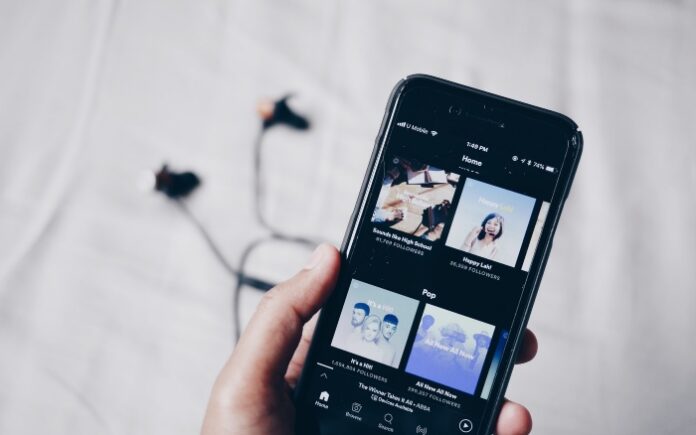In recent weeks you may well have noticed, it would be hard not to have, that Spotify has had something of a public relations problem. The most recent news stories have surrounded the behavior of one of their biggest assets, podcaster Joe Rogan, and his propensity to have guests on his show who echo a few very worn-out conspiracy theories in relation to the coronavirus pandemic.
The reaction to Rogan’s behavior even led to a number of artists pulling their musical output from the Spotify library, but it is important to note that anger towards the streaming behemoth goes a lot deeper than this latest issue. The backlash against Spotify starts with Joe Rogan, but it surely doesn’t end there.
That Whole Joe Rogan Mess Explained
Spotify paid Joe Rogan the massive sum of around $200 million to run his podcast via their channel and, in doing so, simultaneously signed up a hugely popular broadcaster and also put YouTube’s nose out of joint into the bargain.
The deal showed just how much money there was to be made in the podcast arena and also just how much Spotify had to offer him, which is down in no small way to the fact that they manage to make a very large sum from the streaming of music while offering the musicians whose music they use a relatively small portion of the pot.
Rogan is no stranger to controversy, and his show often puts people’s backs out of joint, and his recent guests, a number of them, were seen to further a narrative around the coronavirus pandemic that was caused great consternation by the scientific and medical communities. In allowing these views to be played out on his show, played to millions of impressionable people among his audience, you could argue (and many have) that Rogan was harming the efforts to beat the virus or at the very least help to stem its flow.
As well as scientists and medical professionals being angry with Rogan, there were a number of major musicians who were so incensed by the fact that Spotify gave the podcaster his platform and seemed indifferent to his attitude to such a big issue. Among those were Neil Young and Joni Mitchell, the pair have a commonality in that they both suffered from polio before the vaccine for the disease was commonplace, so they clearly had a personal issue with what was occurring.
To Rogan’s credit, he came out and made a seemingly genuine apology, but Spotify’s problems do not begin and end with the 54-year-old former UFC commentator.
The Bigger Picture In Terms of Anger Aimed at Spotify
Musicians in 2022 struggle to make a living, far more so than at any point in recent history, and Spotify certainly is part of the problem and not the solution in terms of that particular pickle.
There was a time when musicians would secure a living through selling physical music in the form of CDs, cassette tape, and vinyl records, but that time has (for the most part) passed, and now musicians must find other ways to make a living.
Prior to the pandemic, live shows were booming, and artists, especially big established acts, would make the lion’s share of their revenue from big sold-out shows, but the coronavirus put a full stop to that for the best part of two years and even now things aren’t anywhere near the way they were before.
Musicians can now look to use avenues like royalty-free music, where they can sell their output, be that song samples of SFX (sound effects) to providers who then offer it to subscribers to use in their projects (from feature films to social media posts).
Streaming Services Are the Enemy
Music streaming services, and not traditional radio airplay, are where the masses listen to music, and on the whole, the level of compensation paid to bands, musicians, rappers, singers, and entertainers of all varieties is poor.
On top of the fact that the amount of money that acts can make from such services, they are also seen as very much biased towards the top-end artists, making it next to impossible for lesser-known artists to get a look in.
Many who are not in the music industry would be shocked to learn of how much Spotify pays artists for their streams. In 2019, many sources reported that the amount they pay to musical acts worked out at around $0.0033 per stream. In other words, artists who secured one million streams of a track would earn the princely amount of $3300.
Of course, an act can choose not to be on the service, but that would be akin to cutting off your nose to spite your face. Spotify is a company that made approx $600 million in profits in 2020, so one can see how such a payment scheme would look unfair to many.
There is also the argument that big artists like Adele have made that Spotify (and other major streaming services) are ruining the sales of albums or even the concept of them at all. After all, they just randomly play single songs as opposed to entire albums as it’s not part of their business model to treat music as part of a larger structure.
On the other hand, Spotify is popular with users, so you could argue that they are merely giving people what they want. Also, there are some who claim, perhaps bizarrely, that Spotify (and others like Apple Music) has actually saved the music industry.
Spotify, and Others, Have Saved the Music Industry…
There is some credence to that claim, but it’s a little tricky to unpick. When the internet age first kicked in, there was a raft of fraudulent paths to take if people wanted to download and listen to music without having paid any money to the relevant artist. There were efforts to prevent this, but on the whole, they were unsuccessful.
Streaming services offered users the chance to listen to high-quality music; for a lot less than the price of individual downloading songs from Apple or elsewhere, and in doing so, they created a different path for music lovers and one that did at least offer some level of revenue to musicians, albeit a lot less than they deserve.
This is not a view that a great many have, and on the whole, it’s agreed that Spotify should be offering musicians a larger slice of their pie; after all, without the music, they’d have nothing to stream to their millions of users in the first place.
Readers Might Also Like:

India.Arie Is The Latest Artist To Pull Their Music From Spotify

Mike & Deja Haugabook: Where Is the Viral Couple Months Later?

10 Fun Facts About Nicole Remy, Star of NBC’s ‘The Courtship’

[FIRST LOOK] Lifetime To Air ‘Wrath’ Starring Michelle Williams, Romeo & Tina Knowles-Lawson

